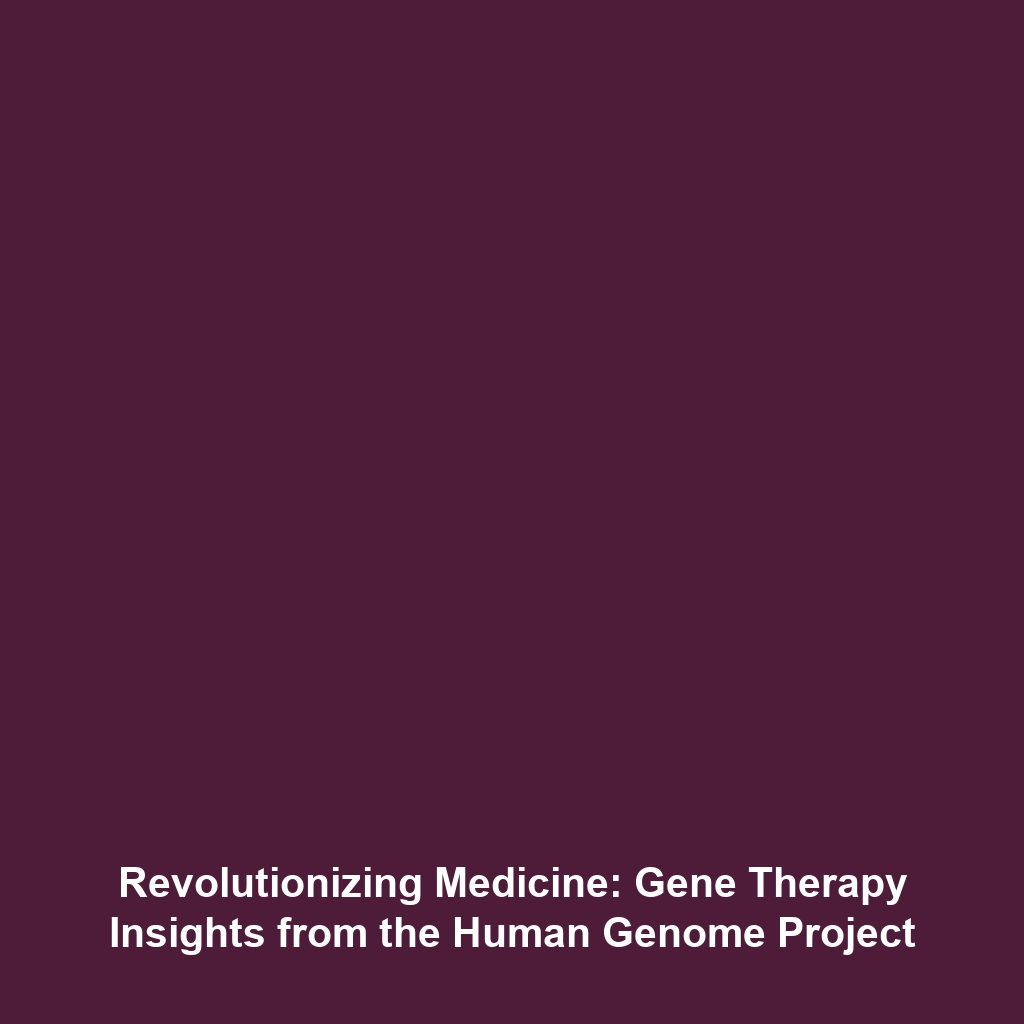Gene Therapy and Its Significance in the Human Genome Project
Introduction: Gene Therapy represents a groundbreaking frontier in modern medicine, harnessing the power of genes to treat or prevent diseases. Rooted in the revolutionary findings of the Human Genome Project, Gene Therapy aims to correct genetic defects, which can lead to debilitating conditions. By manipulating genes at the molecular level, this innovative approach not only exemplifies the applications of genomic research but also highlights the potential of personalized medicine. Understanding the mechanisms of Gene Therapy is essential for advancing healthcare solutions and improving patient outcomes.
Key Concepts of Gene Therapy
Gene Therapy entails the introduction, removal, or alteration of genetic material within a person’s cells to treat disease. This technique is fundamentally linked to the discoveries made by the Human Genome Project, which mapped the human genome, laying the groundwork for innovations like Gene Therapy. The major concepts include:
- Gene Editing: Technologies such as CRISPR-Cas9 allow precise modifications to DNA sequences, enabling targeted treatments.
- Vector Systems: Viruses are often used as vectors to deliver therapeutic genes into target cells effectively.
- Somatic vs. Germline Therapy: Differentiating between therapies that affect only somatic (body) cells versus those that change germline (heritable) cells.
Applications and Real-World Uses
Gene Therapy is being utilized in various fields, significantly impacting patient health outcomes. Some notable applications include:
- Inherited Disorders: Genetic conditions such as cystic fibrosis are being targeted through gene replacement therapy, correcting faulty genes.
- Cancer Treatment: Oncogene therapy aims to turn off active cancer genes or enhance the immune response to tumors.
- Rare Diseases: Gene Therapy offers hope for treating rare genetic diseases like spinal muscular atrophy by providing functional copies of genes.
These applications highlight how Gene Therapy is used in the Human Genome Project, transforming genetic understanding into life-saving solutions.
Current Challenges in Gene Therapy
Despite its promise, Gene Therapy faces several challenges that scientists and clinicians must navigate:
- Technical Limitations: Achieving precise delivery of genetic material to the right cells remains a hurdle.
- Immune Responses: The body’s immune system can sometimes react negatively to vector systems.
- Ethical Concerns: Issues related to germline gene editing raise ethical questions regarding consent and long-term effects.
Addressing these challenges of Gene Therapy is crucial for future advancements in the field.
Future Research and Innovations
Looking ahead, ongoing research seeks to refine Gene Therapy techniques and expand their applications. Innovations include:
- Next-Generation Sequencing: Enhances the accuracy of identifying genetic mutations that Gene Therapy can target.
- Artificial Intelligence: Leveraging AI to predict gene behavior and guide therapeutic strategies more effectively.
- CRISPR Developments: Continued refinement of gene editing tools that promise enhanced efficacy and safety.
These breakthroughs represent the future landscape of Gene Therapy and its integral role in the Human Genome Project.
Conclusion
In summary, Gene Therapy stands at the forefront of genetic medicine, with its roots deeply embedded in the discoveries of the Human Genome Project. As research continues to evolve, it is crucial to stay informed about the advances that could revolutionize treatment options for genetic diseases. For those interested in learning more, explore topics on Human Genome Project or Genetics and Medicine.
